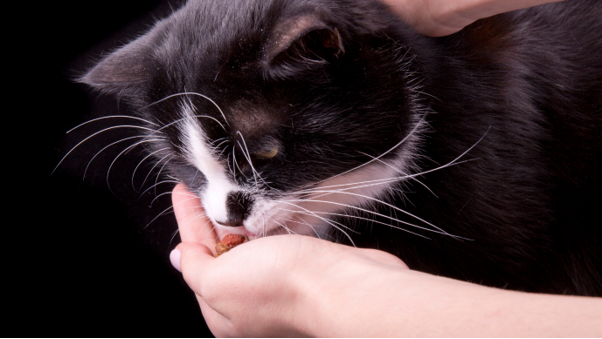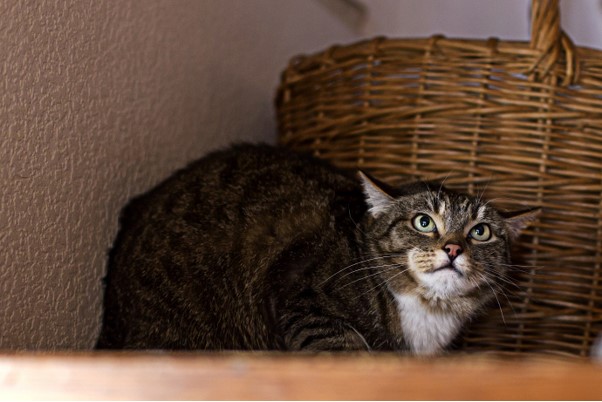There are thousands of adorable cats being looked after in shelters up and down the country, just waiting to find their forever homes. The RSPCA rescues over 30,000 cats each year and they each come with a unique story and a ready-made personality.
Some of these felines are thankfully reunited with their grateful owners after going missing, but others need to find a loving home. The charity Cats Protection rehomed 41,000 cats alone in 2019. Adopt a Cat Month encourages us to consider adopting a rescue cat if we’re looking for a pet to join our lives. By adopting a cat we’re not only helping the individual feline, but we’re also helping to support the much-needed work of the charity. Plus, we are doing ourselves a favour too as cats bring us joy and relieve our stress and form a meaningful connection with an animal.
So, if you are looking for a rescue cat in need of adoption then we have put some key questions and helpful tips that can support your search.
Preparing for your new cat
Make a shopping list of all the things you will need such as:
- Bed and bedding such as a warm blanket
- Food (wet and dry)
- Bowls for food & water
- Toys for entertainment and enrichment
- Scratching post
- Litter tray and litter
- Pet carrier
Have a look around your home to make sure it is pet safe. Put away items you do not want the cat to get to such as precious items and things that may be toxic for your new pet.
If you have children or existing pets, then you will need to consider how to prepare them for the new arrival.
Choosing you cat

-
Why should you adopt from a reputable organisation?
It might be tempting to respond to a pet adoption advert online, but it is not recommended. You will often be left unsure about your cat’s history and the conditions that they’ve grown up in. With a reputable charity you can be sure that your feline friend will have been well looked after. They should come to you microchipped, neutered, and fully vaccinated. Your donation for the cat will also go back into the organisation and help support feline welfare, rather than going into someone’s pocket.
-
Where can I get a beautiful cat as a pet for free?
Be wary of any offers for a free cat unless it is from a trusted friend. You will not necessarily know their medical history and could be setting yourself up for lots of future problems. It costs money to care for a cat well. The most cost-effective way to adopt a cat is to go to a reputable shelter. You can expect to pay around £35 - £55 pounds to adopt a cat and this fee will cover medical costs such as vaccinations etc. You will be confident that your cat has been well looked after in their care.
Shelters will often list their cats online with a photo, a bit about them and what household they might suit. You can contact the shelter directly to arrange an appointment to visit their cats. Once you’re there you will often be drawn to one, or, more likely a cat will choose you!
-
What type of cat should I choose?

Did you know that the least adopted type of cat is usually black? Unfortunately, there are still outdated superstitions around black cats and so often these are the types that get left behind. If you are not fussy about the colour of your cat, then it would be helpful to adopt a black cat. However, it might be worth asking the shelter which of the cats they recommend, and which are really in need of a good home.
-
Adopt a cat or foster a cat?
This depends on whether you’d like to give a cat a forever home or would like to provide some much-needed care to a cat temporarily while it waits to be adopted. This may suit your lifestyle if you’re unable to commit to caring for a pet in the long term. Many charities are looking for suitable people to be able to provide a home for their rescue cats on a temporary basis. By fostering an animal, you will be playing a vital role in helping them to recover from a troubled start in life. Cats who have been fostered find it easier to be rehomed because of the good care you’ve given them. By fostering an animal you’re also helping to free up space in shelters meaning that they can rescue more animals in desperate need.
Bringing your cat home
Rehoming a cat takes lots of love and patience. Take things slowly and let your cat get used to their new surroundings. The shelter will offer tips on how best to help your cat to settle in. They will usually advise that you keep your cat indoors for the first few weeks before gradually letting them out for longer periods.
Grooming can be a great way to bond with your new pet and will help them to feel comfortable and relaxed. Our Principles of Cat Grooming and Welfare course will give you all you need to get started. The four units cover:
- Feline grooming techniques
- Feline welfare, health and first aid
- Cat Care
- Humane Handling, Restraint and Transportation
Understanding their behaviour

We all want to be friends with our cats and enjoy that strong bond and affection that comes with it. It can really help to recognise and understand feline behaviour and what they may be trying to communicate. Cats can also sometimes display problem behaviours. These are usually natural behaviours but performed in the wrong place at the wrong time!
If you’d like to find out more about what your cat is trying to say to you then our Solving Feline Behaviour Problems course is perfect. This short course covers:
- Understanding how cats think and learn
- How to deal with some of the most common behaviour problems
Keeping your adopted cat healthy and well
It is our responsibility to keep our pets healthy and happy. It is wise to consider pet insurance and make sure that you register your feline friend with a vet. To keep our cats healthy and well they need:
- Nutritious food, appropriate for their age
- Supply of water
- Access to a litter tray
- Opportunities to exercise and explore
- Space to retreat to feel safe and to rest
- Opportunities to play (on their own and with you!)
- Regular treatment against worms and fleas
- Annual vaccinations
- Grooming sessions
- Dental care
- Plenty of love and attention!
Knowing of what to do if a first aid emergency arises will give you confidence as you care for your cat. Our Principles of Feline First Aid course will give you all you need for this. During this short online course, you will learn about:
- How to spot signs of illness
- How to conduct a daily health check
- How to clean wounds and apply dressings
- What to include in a first aid kit
Discover more feline care and welfare courses by visiting our website. Alternatively, you can contact us directly to speak to the customer care team by calling 0120 200 640.
Also, if you adore animals, you can keep track of all upcoming animal awareness days and events with our FREE calendar! Download it here.
















